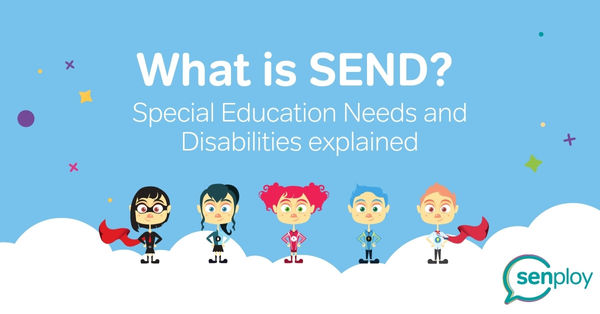SEND stands for special educational needs and disabilities and is a general term for a wide range of challenges a child may experience while learning. While most children can overcome their learning challenges with help from their teachers, others may need additional support in order to succeed in school. Some children may have medical conditions or disabilities that make it harder for them to learn, and other children may simply need extra support in order to be successful. No matter what the case, it’s important to find out what is SEND in education, as it’s important to support these children in achieving their full potential.
SEN stands for Special Educational Needs and Disabilities
When a child has SEN, he or she may experience difficulties in learning a particular subject, forming a coherent idea, or following rules. Some children with SEN may have low self-esteem, lack confidence, or difficulty adjusting to school. Other students may have difficulties making friends, relating to others, or even understanding what’s going on in the world around them. Fortunately, there are many resources available to help educators support these students.
Many children with SEN require a tailored education program to ensure they learn the most. Special educators create a program to meet the child’s individual needs and maximise the learning curve. During the evaluation process, the Special Educator will outline goals for the child based on their current functioning level. These goals are skill-based, aimed at improving specific skill sets and increasing overall academic performance.
It covers a huge range of needs
SEND (Special educational needs and disabilities) is an umbrella term for a variety of needs that are not readily apparent in a child. These needs can range from social difficulties and learning disabilities to global developmental delays and cognitive difficulties. The following list highlights some of the main areas where SEN can affect a child’s education. The following resources can help educators and parents understand how to help a child with SEND.
Children with SEND can require additional support in school without having an EHCP. The support they receive comes from resources provided in schools called SEN Support. However, some children may have more complex or significant needs that require an EHC assessment by their Local Authority. The SEND system applies to children and young people aged 0-25 with disabilities. It is important to ensure that any special educational provision is suitable for all SEN children.
It can be met with specialist equipment
When purchasing specialist equipment for your school, make sure to keep in mind that these items may take some time to arrive. Depending on the manufacturer, this time may depend on a number of factors, including the availability of specific items at the supplier and the courier schedule. You should also keep in mind that specialist equipment in education includes equipment that isn’t a standard piece of classroom furniture. Board technicians are trained to ensure that these items are in good working order, and the school’s IT Help Desk will log any technical issues so that these can be resolved as quickly as possible.
If you’re unsure about the type of equipment your child may need, talk to your child’s therapist. A specialist will help you determine which equipment will be best for your child’s specific needs, and will also take information from you and other professionals involved with your child. They will also discuss the equipment with you. This means that you’ll know the best equipment for your child’s needs and the most appropriate location.
It can be met with specialist teaching
Specialist teachers are educators who work in a school or kura to help students with specific needs. These professionals are highly skilled in curriculum planning, differentiation of lessons, and developing class teachers and teacher aides’ skills in special education. They also engage in collaborative practices, including valuing diverse perspectives and working as partners to develop combined approaches to learning outcomes and assessment. These professionals work in collaboration with regular teachers and students, as well as with a range of agencies.
The Ministry of Education has determined that a school must have at least 0.6 FTTE of specialist teachers. New providers are expected to grow their service to one full-time specialist teacher during their first year of service. Provider schools receive travel and administration funding from the Ministry of Education, based on the number of 1.0 full-time specialist teacher Outreach Service positions at the school. The Ministry of Education reviews funding annually.

